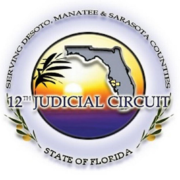Florida Grandparents’ Rights and Collaborative Divorce
Grandparents are, no doubt, an important part of the lives of Florida’s children. The state government has on several occasions since 1978 enacted legislation to recognize Florida grandparent visitation and custody rights. However, each statute which attempted to raise grandparents’ rights to the level of parents’ rights has been struck down by the Florida Supreme Court and appellate decisions as violating the fundamental rights of parents.
One effect of these court decisions is that a family law judge will not grant grandparents any visitation rights over the objection of a fit parent during divorce proceedings.
But what if there was a divorce process in which the importance of grandparents’ interaction with their grandchildren could be recognized? There is, and the process is called collaborative divorce.
Collaborative divorce is a dispute resolution process where the spouses and their attorneys agree not to engage in bitter, public courtroom battles. Instead, decisions concerning the dissolution of the marriage, such as parenting plans and division of assets, are made by agreement of the spouses in private and confidential meetings.
Each spouse has an attorney to help advise them, and a trained facilitator is also retained to ensure that everyone (including the attorneys) focus on the best interests of the children and the future of the family. The facilitator, who is generally a mental health professional, also helps the clients explore creative options – such as including grandparent visitation in the parenting plan – that a judge would never entertain.
In fact, if the spouses agree, the grandparents can even be a part of the collaborative divorce process and have their voices heard.
Keep in mind that a grandparent visitation clause may not be enforceable by court order; however, most family law attorneys’ experience is that parties are much more likely to abide by an agreement reached by compromise as compared to an order imposed by a judge. Further, agreements reached via the collaborative law process have rarely been challenged in court; rather, if a change is needed, the collaborative process is often reinstituted.
If you have questions regarding how a Tampa Bay collaborative divorce process can help your grandchildren, schedule a consultation with The Law Firm of Adam B. Cordover, P.A., at (813) 443-0615 or fill out our contact form.
Adam B. Cordover is Vice President of the Collaborative Divorce Institute of Tampa Bay and a member of the International Academy of Collaborative Professionals. Adam served on the taskforce that drafted the Hillsborough County collaborative family practice administrative order signed by Chief Judge Manuel Menendez.



Trackbacks & Pingbacks
[…] Related: Florida Grandparents’ Rights and Collaborative Divorce […]
[…] Read more at ABC Family Law Blog. […]
Leave a Reply
Want to join the discussion?Feel free to contribute!